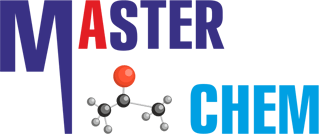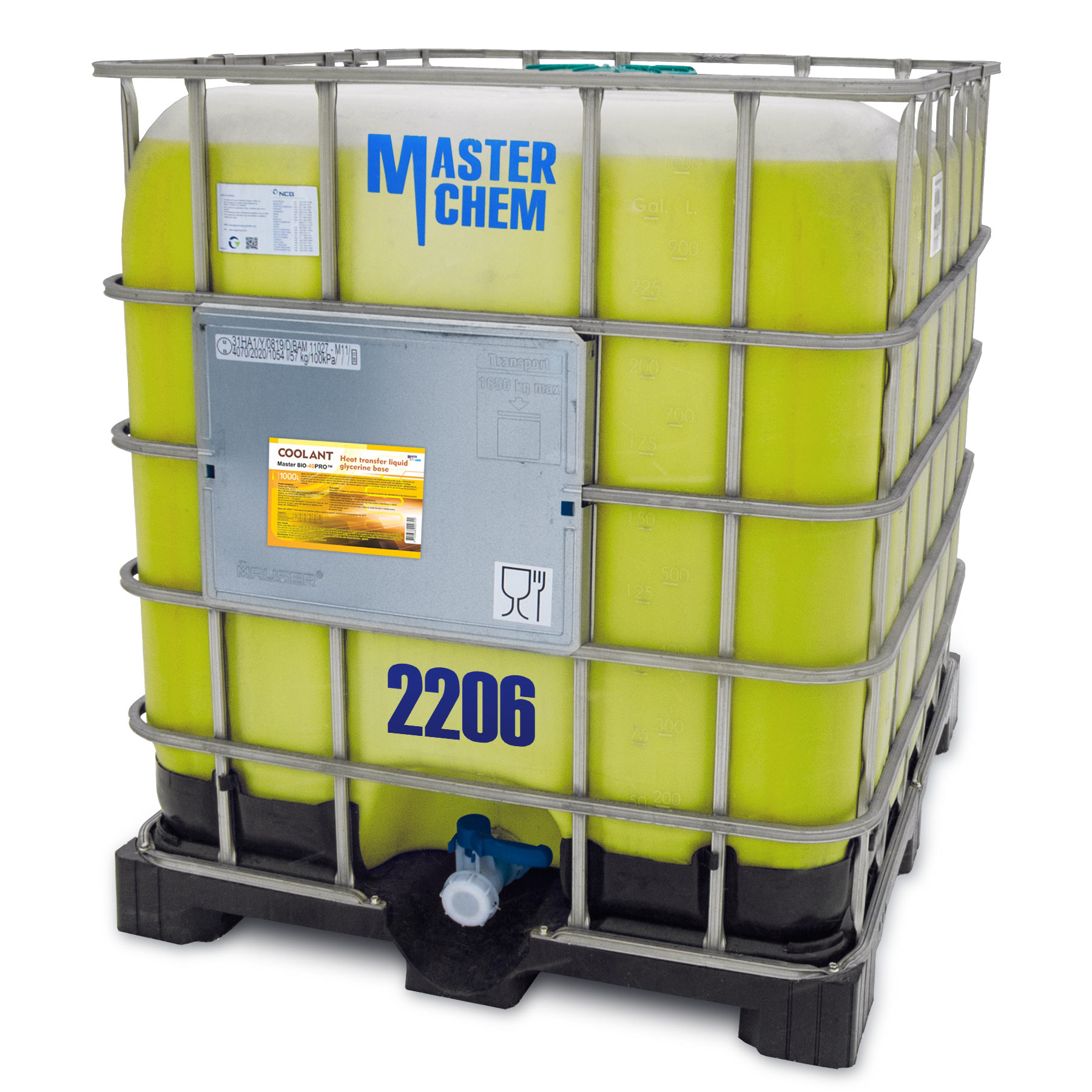Abstract:
This study examines the unique thermophysical properties of aqueous glycerol solutions with a focus on their application in heating systems. By examining variables such as density, viscosity, thermal conductivity, and specific heat capacity at various glycerol concentrations and temperatures, we offer insight into the potential applications and limitations of Master BIO products in thermal engineering.
Introduction:
Aqueous glycerin solutions are known for their diverse applications, owed largely to their distinct physical properties. This research provides a comprehensive analysis of these properties, particularly in the context of heating systems.
Methodology:
We analyzed glycerin-water mixtures with glycerin concentrations ranging from 10% to 70% by mass, at temperatures between 0°C and 100°C. Data was collected on density, dynamic viscosity, thermal conductivity, and specific heat capacity.
Results:
Freezing and Boiling Points: The freezing point shows a sharp decrease at higher glycerin concentrations, beneficial for low-temperature applications.
Glycerine and water solution – Freezing and Boiling Points
| Glycerine to Water Concentration (% by mass, weight) |
Freezing Point | Boiling Point (at normal pressure) |
| t°C | t°C | |
| 98.2 | 13.3 | 290 |
| 95 | 7.8 | 167 |
| 90 | -1.7 | 138 |
| 80 | -20.6 | 121 |
| 70 | -38.9 | 114 |
| 66.7 | -46.1 | 112 |
| Master BIO-40PRO™ 70 | -40.2* | 110 |
| 60 | -34.4 | 109 |
| Master BIO-30PRO™ 57 | -30.6* | 108 |
| 50 | -22.8 | 106 |
| Master BIO-20PRO™ 47 | -20.0* | 105 |
| 40 | -15.6 | 104 |
| Master BIO-10PRO™ 31 | -10.5* | 102 |
| 30 | -9.4 | 103 |
| 20 | -5.0 | 101 |
| 10 | -1.7 | 101 |
| *+_0.5 depends on the inhibitor additive |
Density and Viscosity: Increasing glycerin concentration leads to higher density and viscosity, impacting flow and heat transfer.
Density of aqueous glycerol solution
The density of a mixture of glycerin and water is given in the table for glycerin concentrations from 10 percent to 70 percent by weight in the temperature range from zero to one hundred degrees Celsius.
| Temperature | 10% | 20% | 30% | 31% Master BIO-10PRO™ 31 | 40% | 47% Master BIO-20PRO™ | 50% | 57,% Master BIO-30PRO™ | 60% | 70% Master BIO-40PRO™ |
| оС | ρ, g/cm3 | ρ, g/cm3 | ρ, g/cm3 | ρ, g/cm3 | ρ, g/cm3 | ρ, g/cm3 | ρ, g/cm3 | ρ, g/cm3 | ρ, g/cm3 | ρ, г/см3 |
| 0 | 1,025 | 1,052 | 1,079 | 1,072 | 1,107 | 1,118 | 1,135 | 1,154 | 1,163 | 1,192 |
| 20 | 1,022 | 1,047 | 1,073 | 1.075 | 1,099 | 1,113 | 1,126 | 1,145 | 1,154 | 1,181 |
| 40 | 1,016 | 1,039 | 1,064 | 1.066 | 1,089 | 1,107 | 1,115 | 1,134 | 1,142 | 1,169 |
| 60 | 1,006 | 1,03 | 1,053 | 1,056 | 1,078 | 1,095 | 1,103 | 1,122 | 1,13 | 1,156 |
| 80 | 0,994 | 1,017 | 1,041 | 1,042 | 1,066 | 1,083 | 1.091 | 1,110 | 1,117 | 1.144 |
| 100 | 0,982 | 1,004 | 1,027 | 1.029 | 1,052 | 1,069 | 1,077 | 1,095 | 1,104 | 1,302 |
Dynamic viscosity of an aqueous glycerol solution
The viscosity of an aqueous solution of glycerin is given in the table in the range of mixture temperatures from zero to one hundred degrees Celsius and glycerin concentration from 10% to 70%. It is noteworthy that adding only 10% (by weight) glycerol to water can increase the dynamic viscosity of the solution by ~30%.
Viscosity of aqueous glycerol solution (content in percent by weight)
| Temperature | 10% | 20% | 30% | 31% Master BIO-10PRO™ | 40% | 47% Master BIO-20PRO™ | 50% | 57,% Master BIO-30PRO™ | 60% | 70% Master BIO-40PRO™ |
| оС | μ Pa*10-3 | μ,Pa*10-3 | μ,Pa*10-3 | μ,Pa*10-3 | μ,Pa*10-3 | μ,Pa*10-3 | μ,Pa*10-3 | μ,Pa*10-3 | μ,Pa*10-3 | μ,Pa*10-3 |
| 0 | 2,44 | 3,44 | 5,14 | 5,53 | 8,25 | 12,69 | 14,60 | 25,37 | 29,90 | 76,00 |
| 20 | 1,31 | 1,76 | 2,50 | 2,62 | 3,72 | 5,32 | 6,00 | 9,37 | 10,80 | 22,50 |
| 40 | 0,83 | 1,07 | 1,46 | 1,52 | 2,07 | 2,79 | 3,10 | 4,48 | 5,08 | 9,40 |
| 60 | 0,58 | 0,73 | 0,96 | 1,09 | 1,30 | 1,69 | 1,86 | 2,55 | 2,85 | 4,86 |
| 80 | – | – | 0,69 | 0,71 | 0,92 | 1,15 | 1,25 | 1,66 | 1,84 | 2,90 |
| 100 | – | – | – | – | 0,67 | 0,84 | 0,91 | 1,17 | 1,28 | 1,93 |
Thermal Conductivity: Higher glycerin concentrations result in lower thermal conductivity, suggesting limitations in heat transfer applications.
The thermal conductivity values of an aqueous glycerol solution are shown in the table for a temperature range from 20 to 80 degrees Celsius and glycerol concentration from 10% to 70%. With increasing glycerol concentration, the thermal conductivity of the aqueous solution decreases. With a glycerol content of 50%, the thermal conductivity of the mixture is ~30% less than that of pure water.
| Temperature | 10% | 20% | 30% | 31% Master BIO-10PRO™ 31 | 40% | 47% Master BIO-20PRO™ | 50% | 57,% Master BIO-30PRO™ | 60% | 70% Master BIO-40PRO™ |
| оС | W/(cm•oC) | W/(cm•oC) | W/(cm•oC) | W/(cm•oC) | W/(cm•oC) | W/(cm•oC) | W/(cm•oC) | W/(cm•oC) | W/(cm•oC) | W/(cm•oC) |
| 20 | 0,56 | 0,52 | 0,48 | 0,48 | 0,45 | 0.42 | 0,41 | 0,39 | 0,38 | 0,35 |
| 40 | 0,59 | 0,54 | 0,50 | 0,5 | 0,46 | 0,43 | 0,42 | 0,40 | 0,39 | 0,36 |
| 60 | 0,61 | 0,57 | 0,52 | 0,52 | 0,48 | 0,45 | 0,44 | 0,41 | 0,39 | 0,36 |
| 80 | 0,64 | 0,59 | 0,54 | 0,54 | 0,49 | 0,46 | 0,45 | 0,42 | 0,40 | 0,36 |
Specific Heat Capacity: The capacity decreases with increased glycerin concentration, affecting the energy efficiency of heating systems.
Estimates of the heat capacity of an aqueous glycerol solution are given in the table for temperatures from 20 to 80 degrees Celsius and glycerol concentrations from 10 to 70 percent. With increasing glycerol concentration, the thermal conductivity of the solution decreases. Under normal conditions and a content of 10% glycerol, the heat capacity of the mixture is ~2 times less than the heat capacity of pure water.
Heat capacity of a mixture of glycerin with water (content in percent by weight)
| Temperature | 10% | 20% | 30% | 31% Master BIO-10PRO™ 31 | 40% | 47% Master BIO-20PRO™ | 50% | 57,% Master BIO-30PRO™ | 60% | 70% Master BIO-40PRO™ |
| оС | kJ/(kg•oC) | kJ/(kg•oC) | kJ/(kg•oC) | kJ/(kg•oC) | kJ/(kg•oC) | kJ/(kg•oC) | kJ/(kg•oC) | kJ/(kg•oC) | kJ/(kg•oC) | kJ/(kg•oC) |
| 20 | 1,998 | 1,907 | 1,816 | 1,807 | 1,725 | 1,716 | 1,634 | 1,625 | 1,542 | 1,452 |
| 40 | 2,002 | 1,916 | 1,830 | 1,210 | 1,744 | 1,735 | 1,659 | 1,650 | 1,573 | 1,487 |
| 60 | 2,010 | 1,929 | 1,848 | 1,840 | 1,767 | 1,758 | 1,687 | 1,679 | 1,606 | 1,525 |
| 80 | 2,024 | 1,948 | 1,871 | 1,864 | 1,795 | 1,786 | 1,718 | 1,710 | 1,642 | 1,608 |
Discussion:
The study highlights the trade-offs between glycerin concentration and thermophysical properties. While higher concentrations offer lower freezing points, they also reduce thermal conductivity and specific heat capacity, potentially limiting efficiency in certain heating applications.
Conclusion:
Aqueous glycerin solutions present a viable option for specialized heating systems, particularly in environments with varying temperatures. However, careful consideration of glycerin concentration is crucial to balance between antifreeze properties and heat transfer efficiency.
Procedure in case of emergency shutdown of the heating system.
Solutions of glycerin and water at zero temperatures and below have a high level of viscosity. Therefore, if the system has cooled down, it is advisable to first turn on the heating elements themselves, and then start circulation. This will reduce the load on the pumps.
© 2024 Sergei Vesselkov. All rights reserved.
All rights are reserved and no part of the publication may be reproduced, distributed, or transmitted in any form or by any means, including photocopying, recording, or other electronic or mechanical methods, without your prior written permission.

